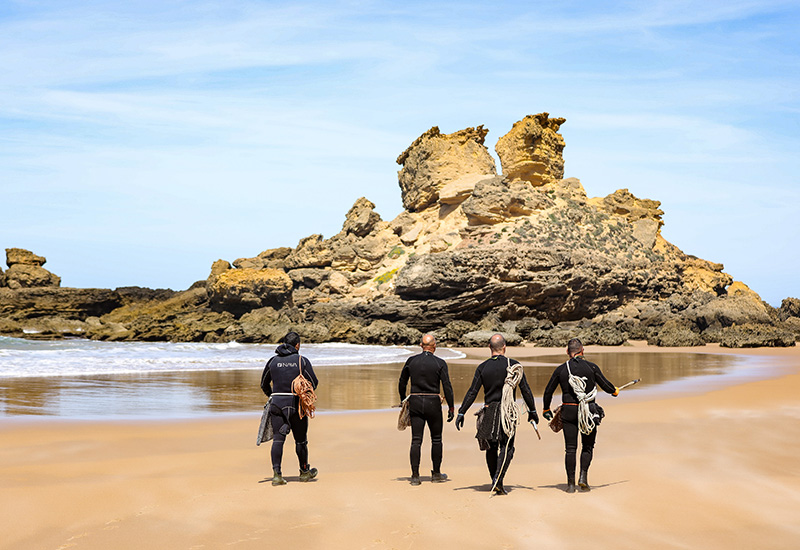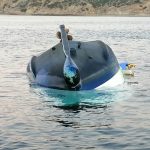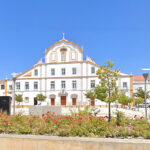You might be unaware that in Vila do Bispo, there exists a band of brothers who put their lives at risk every day for their job. They battle the waves and elements on their mission to kill, descending cliff faces with knives to arrive in inaccessible positions along the craggy coastline.
What is their quest? Are they an elite military corp, a division of the police? No, these brave men are on a quest to seek out and capture … a small crustacean!
The goose barnacle, perceves in Portuguese, is a delicacy of the Iberian peninsular and particularly to Vila do Bispo. To those unfamiliar with this seafood, you will probably turn your nose up a the sight of the sea creature, which resembles a gnarled toenail. However, once you break off its foot and peel back the skin, you will be delighted with the fresh morsel inside. A delicious taste of the sea in a mouthful that will always leave you wanting more.
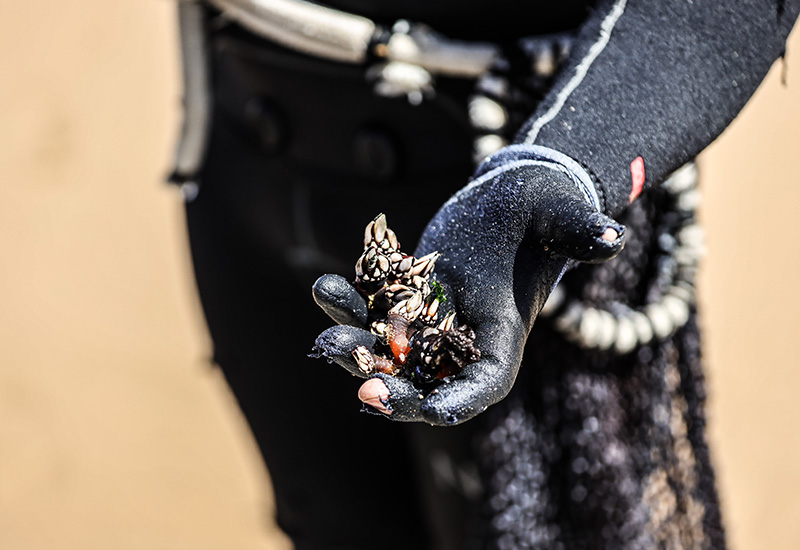
Lonely Planet distinguished the barnacles of Vila do Bispo, which it called ‘kisses of the sea’, as “one of the 50 secret wonders of Europe”. And if this species of crustacean is known for its flavour, it is also known for the difficulty of its harvest.
To find out more, I met Paulo Lourenço. As well as a perceves fisherman, he is also the president of the board of directors of the Association of Shellfish Gatherers of Vila do Bispo and the Vicentina Coast.
This organisation has existed since 2005 and has about 60 members, 40 of whom are professional shellfish gatherers. It was founded by six fishermen, including the first president Paulo Barata. Its modus operandi is to protect its members and lobby the government for better conditions. Shellfish gatherers are a regulated profession, with those holding a licence required to declare a minimum of 3,650€ of taxed income per year. The association is, however, unhappy with the conditions imposed on them by government departments.
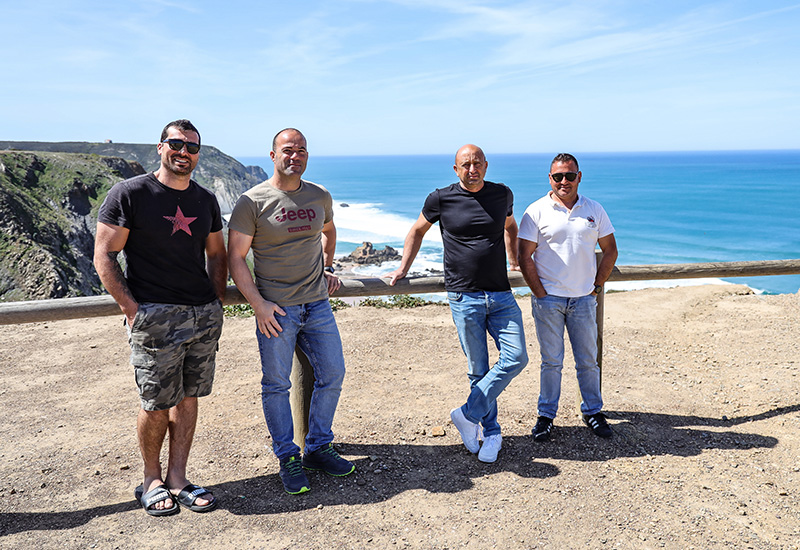
According to the licences granted by the DGRM – General Directorate of Natural Resources, Safety and Maritime Services – they are not allowed to fish from 15 September to 15 December to allow the perceves to reproduce. “We work for nine months; for the other three, we are not entitled to any allowance or income,” explained Paulo. They also argue that, according to research from the University of Évora, May is, in fact, the most successful month for reproduction, so this rule does not make sense. “We don’t feel happy harvesting in May as we don’t want to damage the crop, but with only nine months to make money, we feel we need to.”
The licence also only allows them to catch 15kg per day, which Paulo argues is unfair, as in other areas of Portugal, you are allowed to catch 20kg per day for 12 months of the year. He also sees evidence of fishermen without a special licence catching more than their legal quota of 2kg per day but rarely getting apprehended. As it is such a dangerous profession, it is almost impossible for them to get insured, so the association wants to see government-sponsored insurance policies along with rock climbing safety training. So far their demands have been ignored.
It would appear that a perceves fishermen’s lot is not a happy one. But it’s not all doom and gloom. The delicacy sells at 35€ per kg, so an average salary is 13,500€ from nine months of work. Not to be sniffed at, but as Paulo says, “It is a dangerous profession, and the sea is our boss.” They mainly catch on very low tides which are governed by the full and spring moon and occur every 15 days. These tides fully reveal the rocks where the biggest perceves flourish. “To find the best quality product, we have to climb down some cliffs, with the cables, sometimes in extreme rain and stormy conditions, with strong seas.”
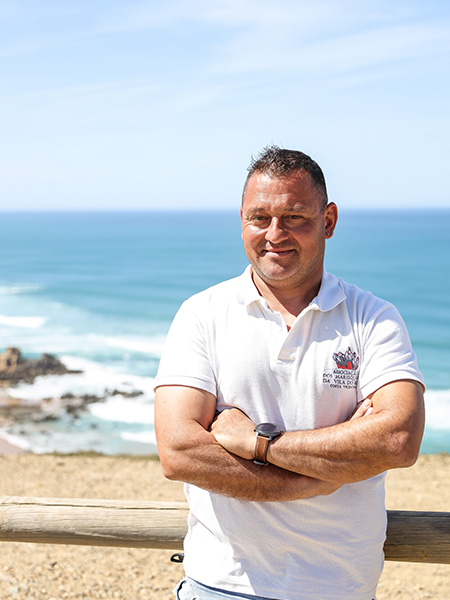
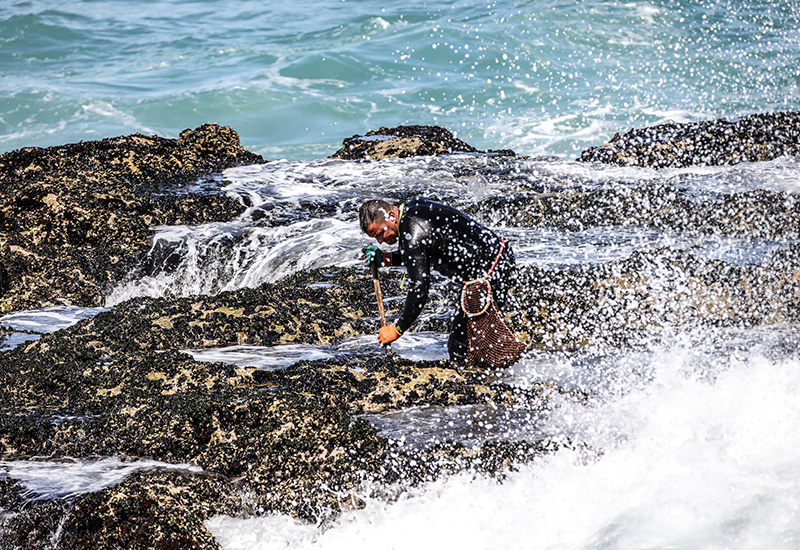
The perceves brothers typically rise at 4.30 am. Working in groups and clad in wetsuits, they descend the cliffs on ropes with just their bónel (net bags) and arrelhada (knife). There are only three or four fishermen in the area who will dive below the water line to harvest the fattest specimens, but it is illegal to wear breathing equipment. The premium ones are the size and thickness of a thumb. The men work all day until 6 pm and then must sell their catch to restaurants or intermediaries. I picture them all meeting for a few beers after a successful catch, but Paulo says, “No, we are all too exhausted.”
Paulo’s passion for perceves started when he was 18 and he used to go along with his father to collect them. These were the days before licences were implemented in 2008. He has subsequently seen the supply diminish like all kinds of seafood. Today, in the area of the Costa Vicentina Natural Park, there are 80 shellfish gatherers, whereas 30 years ago, there were only 10.
As it is a physically demanding profession, Paulo, who is now 43, has decided to hedge his bets – he also works for a boat tour company – but he will continue as long as his body is able. “It’s not a job; it’s a passion,” he tells me. “I can’t explain the feeling of being at the top of the cliff, to have to understand the sea to know where to go on a given day. You feel totally free. It’s in my blood.”
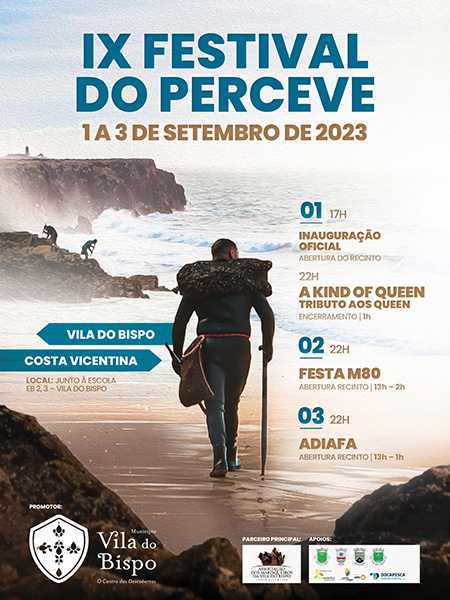
The band of perceves brothers are all now working hard to prepare for the Vila do Bispo Perceves Festival taking place on the first weekend of September in the São Vicente school in Vila do Bispo. Since 2013, the town has celebrated the perceves with a gastronomic festival. This year will be the first since the pandemic. The fishermen have been fishing hard preparing to feed the festival goers who will occupy 900 seats. To feed all these seafood lovers, they will be serving an astounding one and a half tonnes of perceves. To accompany this will be two tonnes of mussels, 2 kg of cuttlefish, 600 kg of prawns, 300 kg of limpets, 300 kg of crab, 280 kg of octopus and 300 kg of moray eel. And if you are still able to get up after this feast, there will be music and dancing and exhibitors’ stands to view. You will also be able to watch the fishermen cleaning the seafood to see how it’s done.
As one of the greatest gastronomic assets of the region, with its harvest being one of the most traditional economic activities in the municipality, the festival is an important occasion. The culmination of a busy fishing time for Paulo and his associates, the festival is sure to give a new flavour of the Algarve to residents and tourists alike. So join Vila do Bispo in a joyful celebration of the tradition and taste of this region’s delicacy.
Photos © Câmara Municipal de Vila do Bispo
